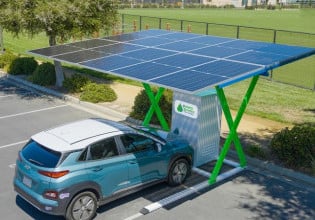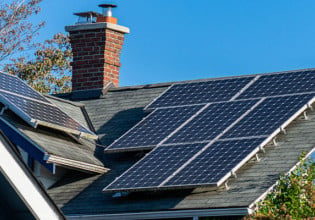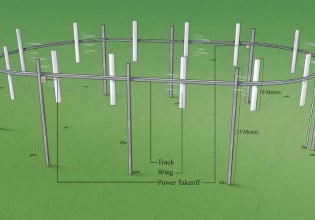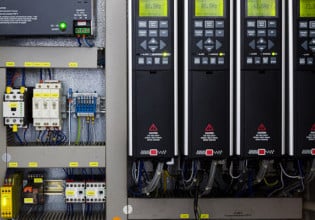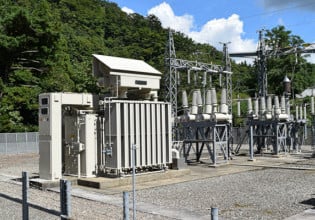eIQ DC-DC Converter System Enables Parallel Architecture For Solar Arays
eIQ Energy, Inc. announced the availability of its vBoost 250 and vBoost 350 dc-dc converter modules, which the company says reduce the installed cost and improve the efficiency of solar power arrays. The vBoost 250 and 350 are the core components of eIQ Energy’s Parallux system, which enables solar panels to be wired in parallel rather than in series.
Parallel wiring is said to reduce the amount of hardware needed for a solar array, simplifying array wiring, and remove many design and installation constraints. While panels and inverters are the most visible and expensive components of asolar power installation, the wiring, junction boxes, racks and other "balance-of-system" gear drive significant cost as well. The vBoost technology is said to remove the need for much of this equipment and can cut total system costs by 5 to 10%, even for large commercial installations. Additional savings can be realized through simplified design and installation.
Each vBoost module has an integrated wiring harness and snap-together connector, which eliminate a large amount of custom on-site wiring. The vBoost modules also provide distributed maximum power point tracking. This ensures that the inverter constantly operates within its optimal range, with each panel contributing to its full potential at all times, regardless of shading, installation angle, soiling, and other design and operational issues. This is said to simplify the task of designing an array, gives designers more flexibility, extends the life of system components, and increases power harvest by 5 to 30%.
By applying advanced dc power management technology to solar energy, the vBoost modules also allow an unprecedented number of solar panels to be connected on a single cable. Over 100 thin-film panels can be linked, said to be a 20-fold increase over traditional wiring schemes.
According to the company, unlike microinverter-based wiring technology, the Parallel Solar approach creates a dc bus that operates at a constant high voltage, allowing an installation’s dc-ac conversion to be handled by a single central inverter operating in its most efficient range. This approach means there is only one inverter connection to the outside power grid, rather than hundreds or thousands – greatly reducing the need for connection monitoring and management.
"Our beta-testing program has validated the design decisions of our engineering team, and provided extremely encouraging performance results for the vBoost products," said eIQ Energy CEO Oliver Janssen. "From the beginning, our mission has been to make solar energy more practical and affordable. Bringing vBoost to market is not only a milestone in that process but also a stepping stone in delivering the potential of renewable energy into the mainstream."
Base MSRP for the vBoost is $99.95 for the vBoost 250, which is designed for use with lower-voltage panels and has a 250W capacity, and $129.95 for the 350W vBoost 350, which is optimized for higher-voltage panels including thin-film designs. Harness solutions are also available, and are customized based on each system’s specifications. The vBoost unit is available immediately.
Additional elements of the Parallux system, including the communication module for panel-level monitoring via the main power bus, will be formally announced later this year.


